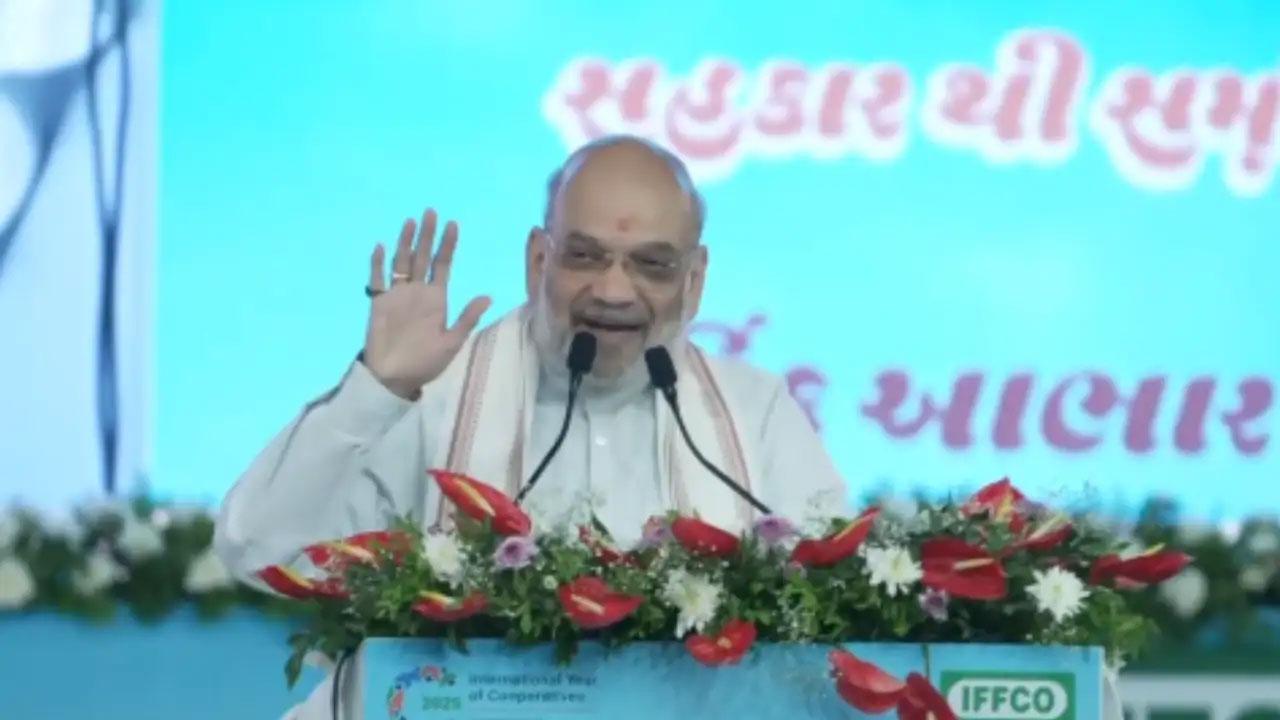The IFFCO has played an important role in making India self-reliant in foodgrain production and taken steps for the shift from chemical to nano and bio fertilisers, Union Cooperation Minister Amit Shah said.
Whether it is about helping farmers, conducting research and development, marketing, branding and reaching out to every household, “IFFCO has shown such efficiency which any corporate company would be put to shame,” he said.
Shah was addressing a gathering at the golden jubilee celebration of the Indian Farmers Fertiliser Cooperative Limited’s (IFFCO) Kalol unit in Gandhinagar. He also laid the foundation stone for IFFCO’s seed research centre.
While 50 years of IFFCO have been dedicated to agriculture, grain production, rural economy and the prosperity of farmers, during the next 50 years, it will work to make agriculture modern and productive, conserve agricultural land and save the country’s environment while keeping the existing objectives intact, Shah said.
“If today India is self-reliant in foodgrains, then there is no question in my mind that IFFCO has played a very important role in it,” he said.
“When IFFCO was formed, our focus was on bulk fertiliser application. Today our focus is on targeted and controlled release, to help ensure that soil gets nutrients without damage,” he said.
Shah said IFFCO has achieved a production capacity of 90 lakh MT, a turnover of Rs 40,000 crore and profit of Rs 3,200 crore.
When IFFCO was started 50 years ago, it worked at a high cost and low efficiency, and today it has worked to achieve low cost and high efficiency, the minister said.
“Earlier, we were on the backfoot due to our agricultural policies but today we have reached the forefront in terms of environment,” he said.
In a way, IFFCO is owned by thousands of farmers’ groups across the country, but works like a corporation, Shah said.
IFFCO connected farmers with fertilisers, and worked to connect fertilisers with cooperatives, he said.
“I am sure that when the centenary year of IFFCO will be celebrated, its name will be heard among cooperatives of the whole world just like today,” he said.
“With the passing of time and after researching nano urea, nano DAP, liquid urea and liquid DAP, when it came to production, IFFCO remained number one in India,” he said.
Shah said due to the farsightedness and continuous follow-up by IFFCO Managing Director US Awasthi, today IFFCO nano urea and nano DAP have worked to spread the Indian cooperative sector’s fame across the globe.
“IFFCO also increased its capacity and reach, and by conducting R&D, experiments in the laboratory were taken to the land,” he said.
The seed research centre to be started by IFFCO will help increase land productivity, make the farm production nutritious, modify seeds to work with less water and less urea, and preserve various types of seeds used in our agriculture for years, he said.
“I am confident that this centre will also become a reason for farmers’ prosperity,” Shah said.
Shah stressed on strengthening the cooperative societies at the grassroot level.
The Centre’s cooperative department is working towards computerisation and linking Primary Agricultural Credit Societies (PACSs) with new types of work, and inclusion of the entire economy within the dairy — such as cow dung, animal leather, bones, feed, milk and many products made from milk, he said.
For 75 years, cooperatives did not have an independent ministry, which hampered the work of structuring the cooperative sector and making programmes for its future development, nurturing and raising voice against the injustice in the era of corporates, Shah said.
After Prime Minister Narendra Modi established the independent cooperative ministry, 62 unprecedented steps were taken, he said.
Shah said his ministry has also taken the step of setting up the Tribhuvan Sahakari University (in Gujarat), India’s first national cooperative university, dedicated to Tribhuvan Patel who established ‘Amul’.
“The Congress naturally opposed it. They asked why it was named after Tribhuvan Kaka. I said in Parliament, shame on you, Tribhuvan Kaka was a Congressman all his life, and you people from Congress are opposing him? They did not know that Tribhuvan Kaka was a Congress leader,” he said.
“Narendra Bhai is a leader who runs the country by thinking beyond the Congress and BJP, and rather by thinking about who has contributed what. Tribhuvan Kaka’s contribution in the cooperative sector, the seed of Amul has become a banyan tree today and earned a name all over the world–he created such an institution,” Shah said.
This university will work to bring modern education, cooperative education and transparency in every area of cooperation, he said.
It will work to analyse the cooperative movement of the entire country using modern techniques like Artificial Intelligence (AI) and on that basis, will determine the direction of the cooperative movement for next 50 years, Shah said.
PTI












